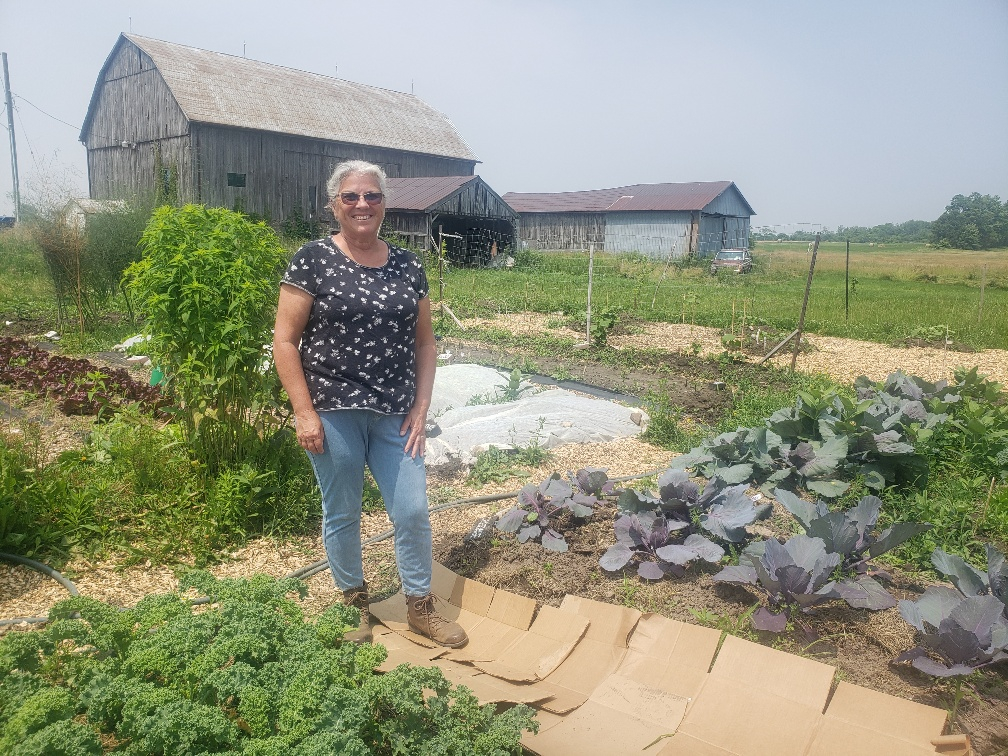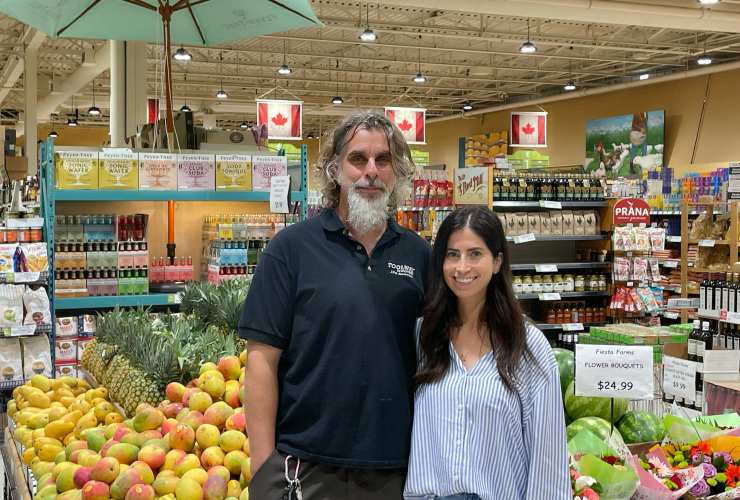Carole Dufour always dreamed of becoming a farmer. However, due to financial constraints, it was not possible until last year when she joined the Common Ground Garden, a diverse farming community in north Pickering, Ont.
Dufour's journey into farming has been driven by her desire to give back to the community and fulfil her lifelong dream. Today, she stands among a team of dedicated individuals working to produce local organic food not only for themselves but to support the local food bank.
"It is amazing to see the variety of food that we can grow here in southern Ontario," said Dufour, a retired teacher. "Coming from northern Quebec, where we were limited in what we could grow, I have learned how to cultivate and farm in this completely new environment. Last year, (the co-ordinator of the garden) had to teach me all the terms in English and how to cultivate in this soil, which is so fertile. We are incredibly productive on this farm."
The Common Ground Garden embraces diversity, welcoming individuals from various generations and backgrounds who are new to Canada. The garden serves as a meeting point for people with different farming expertise, offering a refreshing and enriching learning experience for all involved. Dufour appreciates the valuable lessons she has learned from her peers and the cultural exchange that takes place within the garden.
"We work as a team and support each other, especially during dry periods when watering the garden is essential. It truly is a team effort," she said.
With three locations covering approximately two acres of land, the Common Ground Garden boasts over 50 different crops from around the world, ranging from Asia to Northern Europe, the Caribbean and Africa. The local community refers to the garden as the World Food Farm.
As the garden flourishes, it becomes a vibrant space for cultural exchange and culinary exploration. Dufour recalls the enchantment of encountering unfamiliar crops like Sri Lankan okra for the first time. The beauty of the plant's flowers captivated her. "You don't want to eat it, you just want to look at it, but it is amazing." Within the community, they celebrate this cultural diversity by sharing recipes crafted from the farm's bountiful harvest. Exploring flavours from various countries has been a rewarding and educational experience.
"We don't need to travel to experience new food. We get to taste everything right here with our potluck," Dufour added.
Always eager to expand her horticultural horizons, Dufour embarked on an experiment with Thai basil, a plant she encountered during her travels in Asia. Determined to grow it in the garden, she purchased the seeds and nurtured the plant with care. Her excitement is evident as she reveals, "It is growing very well. I am really excited about that! It is an experiment to see how it thrives and how much the plant grows, and I am hoping that it will do just as well as other basil."
Every Tuesday morning during the harvest season, the members of the Common Ground Garden gather to harvest the freshly grown produce. By 11 a.m., the bountiful harvest is ready for distribution to the Scarborough food bank, ensuring that people have access to nutritious, locally sourced food.
Stephen Marshall, co-ordinator of the Common Ground Garden, told Canada's National Observer that the idea for the community garden started with a local group of people called Land Over Landings, who opposed the construction of the airport in Pickering back in 1972. Their efforts were successful, and the airport project was shelved. The group evolved from People or Planes, which aims to protect valuable Class 1 farmland on federal lands in perpetuity and foster a thriving community focused on agri-tourism and agriculture, including cultivating crops that are traditionally imported.
"The question was: If we are not going to have an airport, then what are we going to do with this land?" said Marshall. "Land Over Landings commissioned a study by agronomists and economists specializing in agrarian economics. They put together a report and came up with the vision of North Pickering Farms, which includes this whole well-watered area close to one of the biggest cities in North America. This could be a destination for agri-tourism, similar to Prince Edward Island or the Niagara Peninsula."

Back in 2019, the land was a meadow with chest-high vegetation, said Marshall. "How do you turn this into a garden? Well, Michael, who leases the land, came along with his mower and then we came with a lawnmower, tiller and shovel, which is pretty much all you need. We dug up the soil, and it was fantastic. Each year, we doubled the size of the farm."
The concept has always been a co-operative garden, organic in nature, where everything is shared — work and distribution — and 25 per cent of the harvest goes to the food bank, he said.
Marshall emphasized that this project aims to address the challenges faced by young farmers who struggle to start their own farms due to urban sprawl and the high cost of farmland.
"It is difficult to start a farm if you have to spend a million dollars on land and a million dollars on equipment. These lands provide an opportunity for what they call incubator farms, where people can come and farm and they get long-term leases. So, they can not only grow annual crops but also perennial crops, shrubs and orchards, and learn everything they need to know," said Marshall.
A recent report by the Royal Bank of Canada found 40 per cent of Canada's farm operators will retire by 2033, and more than half of them have no succession plan.
According to Marshall, these lands could become an incredible production centre for high-quality organic world food to feed the Toronto market, which is substantial.
Members from around the world come here, express what they want to grow and we can grow it, or they can grow it, or we can grow it together, said Marshall. "This could be a research project for a group of researchers from Canadian academic institutions to study how a meadowland can be transformed into a productive garden by the local community."
This story was produced in partnership with Journalists for Human Rights for the Afghan Journalists-in-Residence program funded by the Meta Journalism Project.






Comments